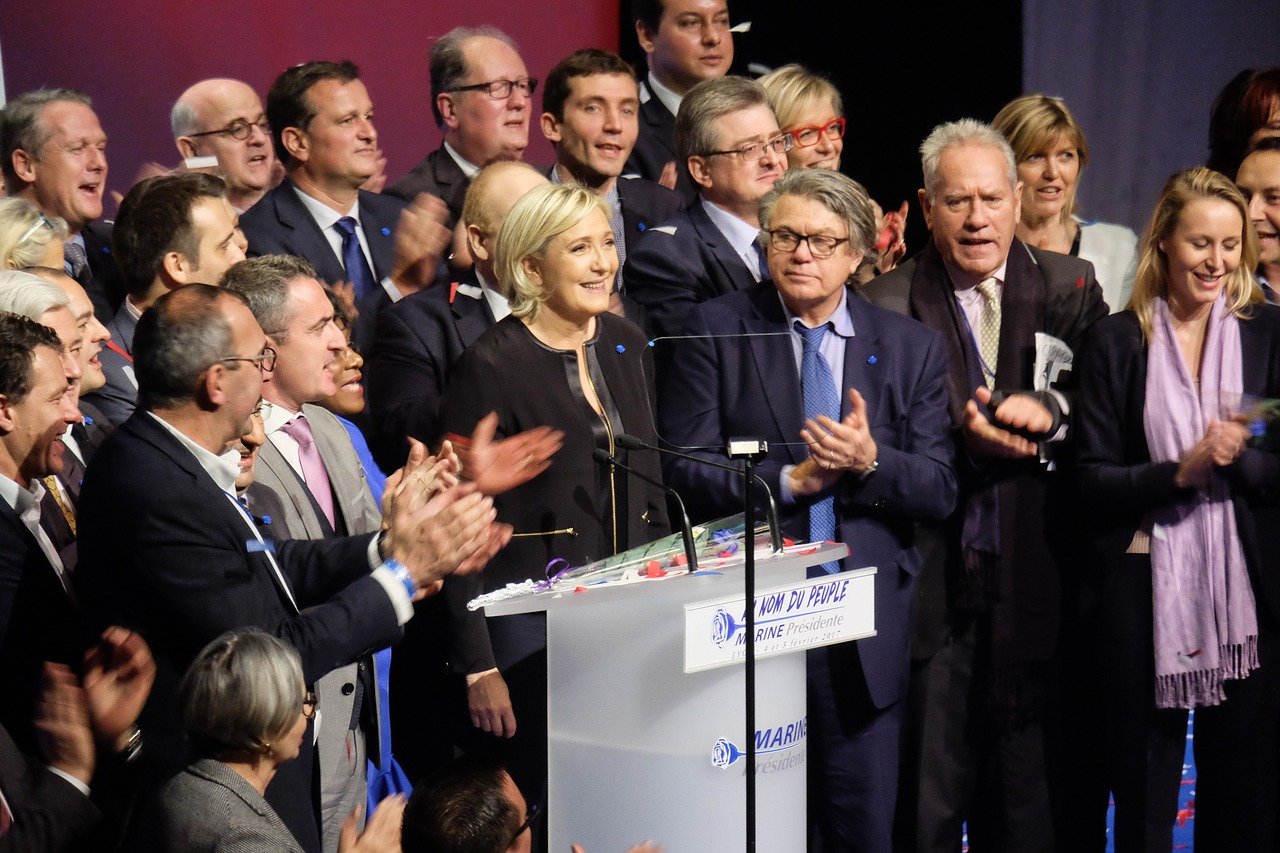When European far-right parties won elections in 2017, they might have benefited from the refugee crises ravaging the continent. But since then, they have become far more savvy and intelligent and have used the media and the internet to popularise ideas that were previously considered unacceptable.
In post-World War European politics, identity took a back seat. The extent was such that liberal forces across the world looked up to European countries as examples of perfect democracies. Politics in the continent was defined and contested on ideology and policy — the polar opposite of the ethno-supremacist run of the early 20th century.
So, when far-right parties secured huge wins in the 2017 European parliament elections, alarm bells rang across the world. Many pointed out that the results could lead to the resurgence of fascism and the jeopardisation of the European Union itself. But after the initial frenzy, most commentators agreed that the results were merely a reaction to the refugee influx from the Middle East and North Africa and nothing more.
Yet, now, almost five years later, in the 2022 French presidential elections, immigration and identity are still major electoral issues. Their importance is being highlighted by the surge in polling of not one but two far-right candidates — Marine Le Pen and Eric Zemmour — in the first round of the elections held last week. While earlier polls had shown President Emmanuel Macron enjoying a healthy lead, as dates are closing in for the final round, Le Pen is closing the gap at an astonishing rate.
What explains the widespread appeal of such candidates, and more importantly, their parties? Although all far-right movements are unique in their own way, there seems to be a tripod on which their growth is rested.
Electoral Acceptability
Public sentiment may have been reactionary during the 2017 elections but that didn’t mean the parties were unserious. They used the validation given by voters to create widespread acceptability for their ideology, thus creating feedback loops for their organisations to sustain as well as expand.
For example, the Italian far-right party, the Lega Nord, under Matteo Salvini, was one of the two forces that emerged as frontrunners in the country’s last general elections — the other being Five Star, an anti-corruption movement turned political party. Both were products of the frustration of voters against extremely corrupt successive administrations and the refugee crisis from North Africa.
Today, as a political force, Lega is far more relevant than the unorganised Five Star and has made extreme conservatism the norm in Italy. Along with Brothers of Italy (a similar nationalist conservative party), it dominates almost all opinion polls. What started with a few rhetorical speeches has now resulted in the capture of power at multiple levels. With each victory, the social tolerance for Lega has gone up and their ideology normalised. This is taking place in a country where Benito Mussolini reigned supreme less than a century ago.
This pattern is visible across the continent. Ideas that were previously considered ‘fringe’ have either become full-fledged independent political forces or have been appropriated by some mainstream conservative parties. An example of this appropriation is the hard-right turn of the British Conservative party under Boris Johnson: It recently cleared a controversial citizenship bill by which people can be stripped of their citizenship without even being notified about it.
Effective Articulation of Voters’ Insecurities
Amongst the younger voters, right-wing parties are finding acceptance thanks to a newer, more composed presentation of their ideas — no longer overtly hostile chants and anti-Semitic dog whistles. These parties have created an entire ecosystem, mostly relying on the internet to bypass gatekeeping forces like the mainstream media.
An example of this is PragerU, an online conservative media outlet founded by Dennis Prager and Allen Estrin. Their organisation has managed to revamp previously unacceptable ideas using carefully worded articles and videos. For example, the idea of colonisation being the “white man’s quest to civilise the world” — a theory largely rejected for its racist origin — is reworded to: “If you live in freedom, thank the British empire.”
These online portals have managed to embed their ideology within public discourse, largely by exploiting pre-existing voter insecurities. The last few decades have seen migrants from across the world move to Europe in search of better opportunities and lifestyles. While Europeans have been far more welcoming and receptive to foreigners compared to other regions, there was always a section of the population that was intimidated by the arrival of these new cultures. The refusal of the liberal parties to address these concerns created a vacuum of representation, which in turn facilitated the growth of ‘alternative’ sources of information.
Taking advantage of this, the far-right ecosystem filled the knowledge gap with its ideological goals, thus making its vocabulary a part of public discourse. A very good example of this is how Steve Bannon, with his website Breitbart, made the word ‘Judeo-Christian culture’ a staple of conservative speech.
Disenchantment With Globalisation
For the last 30 years, Europe was the only region that didn’t experience large-scale military conflict. This allowed the continent to rebuild its trade dominance on the back of globalisation and a deep belief that full-fledged wars were a thing of the past. However, in the last three years, both these ideas have been rudely challenged.
First, there was the COVID-19 pandemic. While many may not remember this now, it was Italy that suffered the first major COVID-19 outbreak outside China. The rest of Europe soon followed the same trajectory, even though their descent and recovery were more graceful. The pandemic also brought a wave of economic distress to the continent, as both trade and tourism were hit sharply. These challenging circumstances pushed people towards conspiracy theories.
The world had barely recovered from the deadly blows of the virus when Russia decided to invade Ukraine. Europe clearly wanted to punish Russia but the EU’s hands seem to be tied owing to its high dependence on Russian gas.
In both these incidents, the dangers of an overly globalised world came to light. The EU was heavily dependent on manufactured goods from China and energy from Russia. These vulnerabilities reinforced existing prejudices against globalisation.
Given these factors, is it surprising that a significant section of Europeans is now genuinely fearful of their future? Is it surprising that they have questions about what will happen to their culture, livelihood, etc? All of these unanswered questions and factors together have formed a political front, united by a common sense of an existential threat to the White European identity.
The Great Replacement Theory
Proposed back in the early 20th century by French Nationalists, the Great Replacement Theory has been revived today in Europe by French author Renaud Camus. Per Camus, native white Europeans are being replaced in their countries by non-white immigrants from Africa and the Middle East, and the end result will be the extinction of the white race. While this has taken an anti-Semitic turn in the United States, prejudice in Europe is still limited to Muslims and Africans.
Over the past decade, this theory has become central to political discourse in many Western countries, resulting in race and religion becoming central to elections. The ongoing French election, just like the last one, could mark the first time a candidate whose entire politics is rooted in this theory becomes the head of a European government. But even if Le Pen fails to win this election, it will by no means halt — much less end — the march of the far-right.
Paarth Pande is a freelance journalist. He started his career as a combat sports writer before shifting to commentary on politics and elections. He has completed his graduation in journalism from St Xavier's, Mumbai. His work has previously been featured on Standpoint India, Sportskeeda, Cagesidepress, Fan Sided etc.


